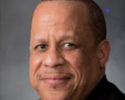Conversations that change campuses
By Kevin Christian
January 20, 2021
Community college leaders are engaging in courageous conversations to address racial and structural inequities.
Many community colleges have been engaged in courageous conversations over the last decade. Data around men of color and persistence, immigrant education and faculty diversity are examples of timely topics community college leaders have been addressing in difficult conversations that help lead to greater institutional effectiveness and student success.
In the wake of the Covid pandemic and Black Lives Matter demonstrations, community college faculty and administrators have been challenged to discuss how best to address racial and structural inequities that persist on campuses and in communities. To enter the national conversation, community college leaders have released anti-racism statements and civic and democracy commitments, and they have invested financial and human resources to advance diversity, equity and inclusion initiatives intended to reduce systemic biases. Many colleges have established college-wide task forces and committees to focus on practices and traditions on campus.
Many leaders are engaging in frank and difficult conversations with attention to community engagement; curriculum and pedagogy; data and data collection; student services; and campus policies and procedures to ensure that every student, faculty and staff member is welcomed as a full and equal member of the campus community.
For example, Beverly Walker-Griffea, president of Mott Community College (MCC) in Michigan, led her college through Flint’s water crisis in 2014. The college reached out to the students and community to discuss how they were affected. More recently, Walker-Griffea led a campus listening tour that encouraged students and staff to share their stories, defining moments and expectations to build trust within the campus community.
Walker-Griffea says that it is essential to build trust within your college. By building trust, honest and constructive conversations begin to lead to action. As a result of the listening tours and conversations, her college established the MCC Council, which comprises five distinct committees that have open and honest dialogue around institutional inclusion. The five committees – student success, teaching and learning, workforce partnerships, community sustainability and employee success – include students, faculty, staff and community members who meet monthly to confirm that the college is effectively addressing challenges and ensuring equity for community members.
Commitment from the top
After the 2017 White nationalist rally in Charlottesville, Virginia, that led to the death of counter-protestor Heather Heyer and several injuries, Maureen Murphy, president of the College of Southern Maryland (CSM), decided to write a public statement denouncing the incident. Her statement brought together the executive leadership at the college to talk about the incident and how diversity is one of the college’s core values.
Following George Floyd’s death this year in Minneapolis, Minnesota, Murphy and campus leadership at CSM hosted college-wide sessions that provided safe spaces for faculty, staff and students to discuss the incident. Murphy says that “it was important to honor what people feel.”
Last July, CSM took the 30-Day Justice Challenge to focus on equity. Even with courageous and thoughtful conversations, there are no easy solutions. Murphy says that for leaders to start the conversations on their campuses “there must be frank and candid discussion with the board of directors.” Leaders must keep their fingers on the pulse and hold sessions that encourage open discussion. Most of all, they need to listen to all, especially those disenfranchised voices.
CSM has embarked on a commitment to continuous cultural competency training for all staff that encourages conversations at all levels to ensure that equity and student success are at the core of the college’s mission and vision.
Opportunities to be heard
Ryan McCall, president of Marion Technical College (MTC) in Ohio, says it was necessary for the college to have conversations to ensure that different perspectives were shared and that everyone had an opportunity to be heard. McCall notes that at his campus “respect for all thoughts brings a better understanding while encouraging humility.” Doing so shows the leadership team that we are all in this together, he adds.
To measure the effectiveness of these conversations, it is important that college leadership sets metrics that are implemented across the board and raise awareness. MTC recently implemented four conversations around sexism, privilege, incarceration and systemic racism. McCall believes that extending grace and providing space makes a significant impact on the tone of the conversations being held at the college.
McCall indicates that the conversations are designed to help others see what different perspectives and perceptions mean and to allow his staff to understand the importance of the context. McCall says that “perception is reality, and their reality is student success.”
There’s more to the story! Read the full article in CC Daily.



